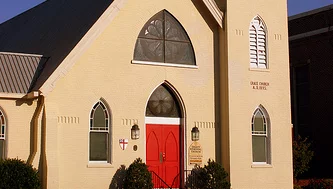
photo courtesy of Brent Moore (CC)
If you use facebook or follow prominent Christian websites, you are probably aware of the recent lively discussion about church. The latest installment in this debate began when Donald Miller wrote a blog post in which he acknowledged that he does not frequently attend church.
Many evangelicals responded to Miller’s comments. Several authors wrote defenses of the church and the need for community. Others saw Miller’s approach as “spiritual suicide.” Still others saw Miller’s confession as indicative of serious problems faceing the evangelical movement. (See the responses from Derek Rishmawy, Doug Bursch, and Zach Hoag.)
Following this feedback, Miller posted a response and gave Relevant Magazine an interview. He acknowledged that he was taken aback by the response to his post. He had expected his comments to be largely uncontroversial. He sought to explain his comments by saying that he did not find church to be beneficial to himself, because it did not suit his learning style, but he still valued the church and considered his own worship to be appropriate.
Perennial Questions
This conversation has raised a number of age-old questions: What is a church? Who is part of the church? What does it mean to be the Church?
From my vantage point, the vast majority of contributions to the current conversation have been focused on the here and now. Much of Miller’s perspective seems to be grounded in his own experience. Many of his attackers also seem to focus on their experiences. Other responses want to develop an ecclesiology. What seems to be missing is the historical context of this conversation.
Over the next few weeks, I will briefly address the historical context of how the church has defined itself. I will begin by looking at the question, “What is the Church?” From there, I will look at some of the other questions that have been asked about the Church.





Comments
Be the first one to make a comment!